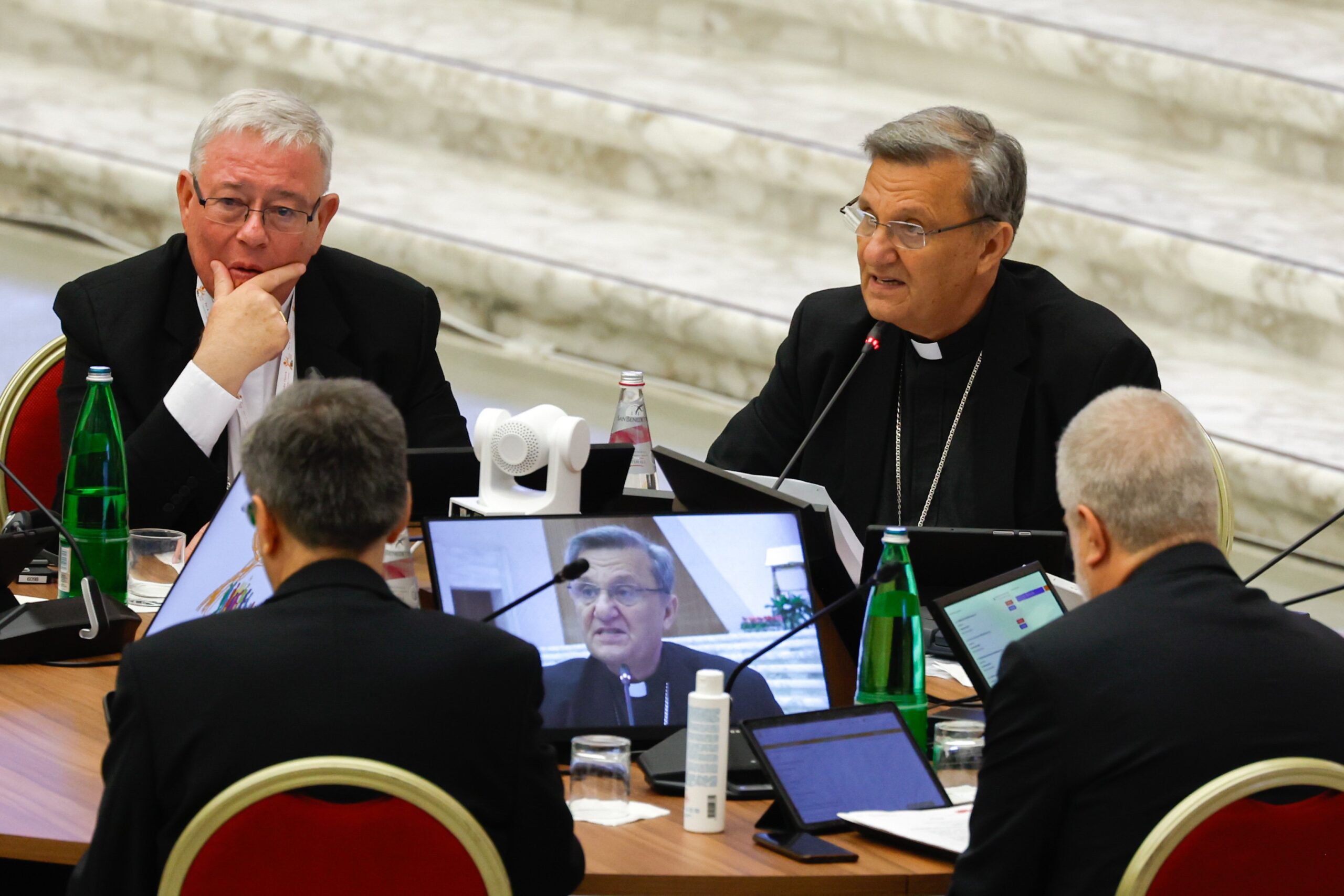Listen to your Catholic sister and brother. Really; take the time. Listening requires little; it also requires a lot.
Listen. It is hard to make a case for communion if we fail to listen to one another with Christian love and awe.
The synodal process is ultimately a reminder of who we are: people of God guided by the Holy Spirit. As such, we are a synodal community, a body of Christian disciples who walk together throughout history with a common hope. God speaks through many voices. Listen.
Since the Second Vatican Council, little has sparked the interest of the Catholic community worldwide as much as the process accompanying the two-part Synod on Synodality. The synodal process has managed to attract the attention of a wide variety of voices ranging from highly invested pastoral leaders to Catholics living in the fringes of church life.
At the heart of the synodal process is the invitation to listen. The task could be overwhelming since that listening is to happen while we use the many venues available to express our voices without filters and delight in the ability to reach vast audiences with little effort.
A multiplicity of voices carrying numerous tones and perspectives speak all at once, all guided by the Spirit. Cacophony or harmony? I would say both. As the baptized discern ways to sincerely listen to one another, we strive to hear God’s voice.
Supporters and detractors of the synodal process to which Pope Francis has invited all Catholics are feasting in a bewildering ocean of voices and opinions. The process itself anticipates this. If one wants to be true to the synodal process, we should remain open to listening to 1.3 billion Catholic voices.
Unending social media conversations, newspaper and magazine articles, opinion columns, blogs, websites, books, pastoral letters, homilies, teachings, theological treatises, lectures and everyday conversations coincide all at once, sharing common Catholic hopes and concerns.
For many Catholics, engaging in a process like this is unusual, perhaps uncomfortable, even frightening. We are heirs of centuries of ecclesial practice in which only a few voices expressed their opinions about how to live and practice the faith. Most Catholics seemed content with that status quo, deferred to the few — usually ordained or highly educated — or simply remained uninterested.
The Second Vatican Council reminded Catholics that all the baptized have a non-negotiable responsibility toward the work of evangelization. The baptized have received the Holy Spirit that moves us to build the church and to journey on the path of holiness. No exceptions.
Because the Holy Spirit lives in us as baptized people of God, all our voices count when discerning how to best live our faith as church. The Spirit speaks in and through every baptized person. The synodal process is an invitation to listen to God’s Holy Spirit speaking in many voices.
It is urgent that amidst our zeal to promote progress or conserve tradition we do not dismiss the work of the Holy Spirit by closing ourselves to certain voices while privileging others. We need to listen to one another with open hearts and minds.
We must listen with ecclesial humility and a prayerful attitude. This is why we are invited to engage in the practice of spiritual conversation. Listen. Pray. Listen again. Speak when necessary.
Will Catholics actually listen to one another as we build communion amidst the pluralism of voices and perspectives that define who we are as church? We have no choice. We are a synodal church. Let us listen to the many voices through which the Holy Spirit speaks incessantly in our time.
Hosffman Ospino is professor of theology and religious education at Boston College.




